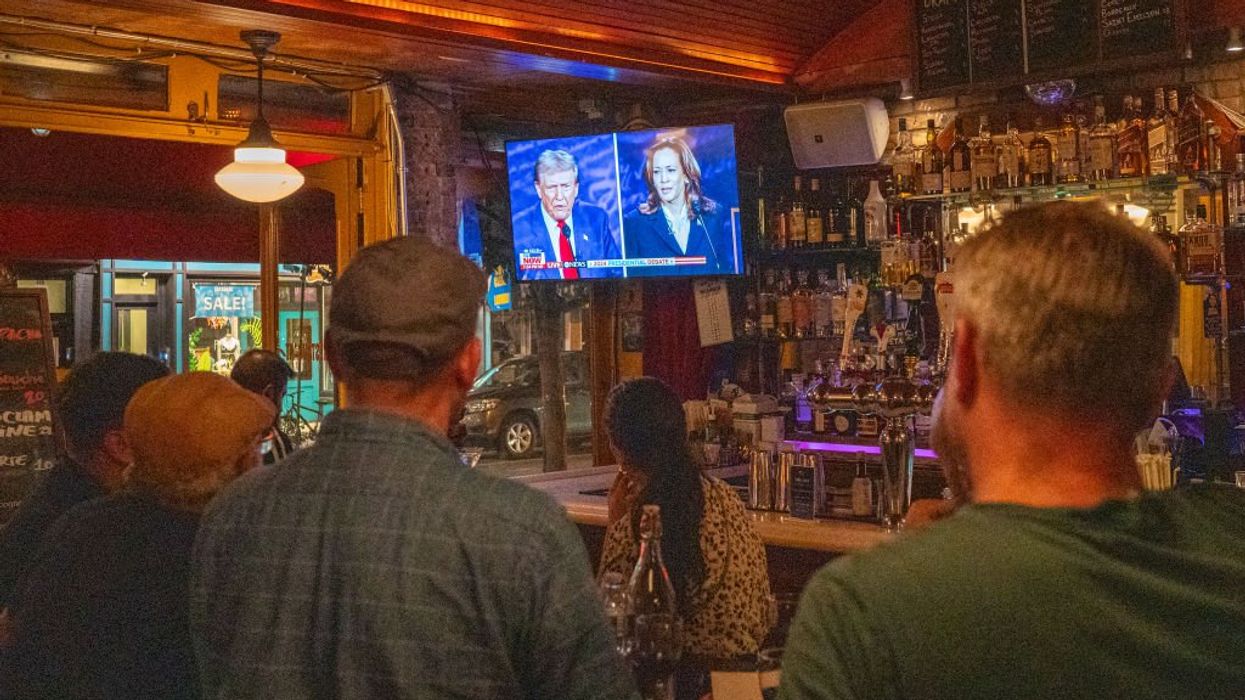The Fulcrum introduces Congress Bill Spotlight, a report by Jesse Rifkin, focusing on the noteworthy legislation of the thousands introduced in Congress. Rifkin has written about Congress for years, and now he's dissecting the most interesting bills you need to know about, but that often don't get the right news coverage.
In response to Trump’s takeover threats, Canadian coffee shops and cafés are rebranding the Americano beverage as the “Canadiano.”
What the bill does
The No Invading Allies Act would prevent President Trump—or any president—from using military force upon Canada, Greenland, or Panama unless Congress approves.
The bill was introduced on March 6 by Rep. Seth Magaziner (D-RI2).
Context
Canada and Greenland are both official NATO allies of the U.S., since Greenland is a territory of Denmark. (Though the island has been self-governing since 2009.)
Panama is not an official ally, since they’re neither part of NATO nor one of the official 19 “major non-NATO ally” nations. However, they’re something of an unofficial ally—the U.S. has gotten along well with the nation ever since Manuel Noriega’s military dictatorship was deposed in 1989 by a U.S. military intervention.
Trump has openly mused about annexing Greenland for military strategy in that corner of the world, annexing Panama over concerns that China is exerting too much control over the Panama Canal, and annexing Canada because he believes they’re too lax in controlling the flow of drugs over their U.S. border.
In a January press conference, asked whether he would rule out the possibility of military force to take over Greenland or Panama, the typically loquacious Trump answered with one word: “No.”
During his Senate confirmation hearings, Defense Secretary Pete Hegseth was asked about the possibility of using military force on Greenland or Panama. His evasive non-answer caused Sen. Mazie Hirono (D-HI) to reply: “That sounds to me like you would contemplate carrying out such an order.”
What supporters say
The bill’s supporters argue that the legislative branch should exert more of a say over such a consequential and potentially fatal incursion.
“The American people do not want to take over other countries. Nobody voted in the election to take over Canada or Greenland,” Rep. Magaziner said in a House floor speech. “The president never talked about that during his campaign.”
“I urge my colleagues, whether you believe the president is serious about wanting to take over other countries or not, whether you take him at his word or not, whether you think he might involve us in unnecessary wars of conflict or not: let’s not leave it up to chance.”
What opponents say
Some opponents counter that Trump is just bluffing.
“The United States is not going to invade another country. That’s not who we are,” Sen. James Lankford (R-OK) told NBC’s Meet the Press. Trump “is the president that kept American troops out of war. He is not looking to be able to go start a war, to go expand American troops.”
Other opponents may also counter that the Vietnam-era War Powers Act of 1973 already requires congressional approval to renew a president’s military action if it lasts at least 60 days. (Although the bill’s supporters contend that, when it comes to Canada or Panama or Greenland, such military action shouldn’t even last one day.)
Odds of passage
The bill has attracted nine Democratic cosponsors. While some congressional Republicans have expressed hesitancy or dismissal towards Trump’s threats of military force, none have actually signed onto this bill yet.
It awaits a potential vote in either the House Armed Services or Foreign Affairs Committee, both controlled by Republicans.
In the meantime, enjoy this recent viral symbolism-laden photo from wildlife photographer Mervyn Sequeira, depicting a Canadian goose scaring off an American bald eagle.
Jesse Rifkin is a freelance journalist with the Fulcrum. Don’t miss his report, Congress Bill Spotlight, on the Fulcrum. Rifkin’s writings about politics and Congress have been published in the Washington Post, Politico, Roll Call, Los Angeles Times, CNN Opinion, GovTrack, and USA Today.
SUGGESTIONS:
Congress Bill Spotlight: Suspending Pennies and Nickels for 10 Years
Congress Bill Spotlight: Trump’s Birthday and Flag Day Holiday Establishment Act
Congress Bill Spotlight: Donald J. Trump $250 Bill Act
Congress Bill Spotlight: Impeaching Judges Who Rule Against Trump




















